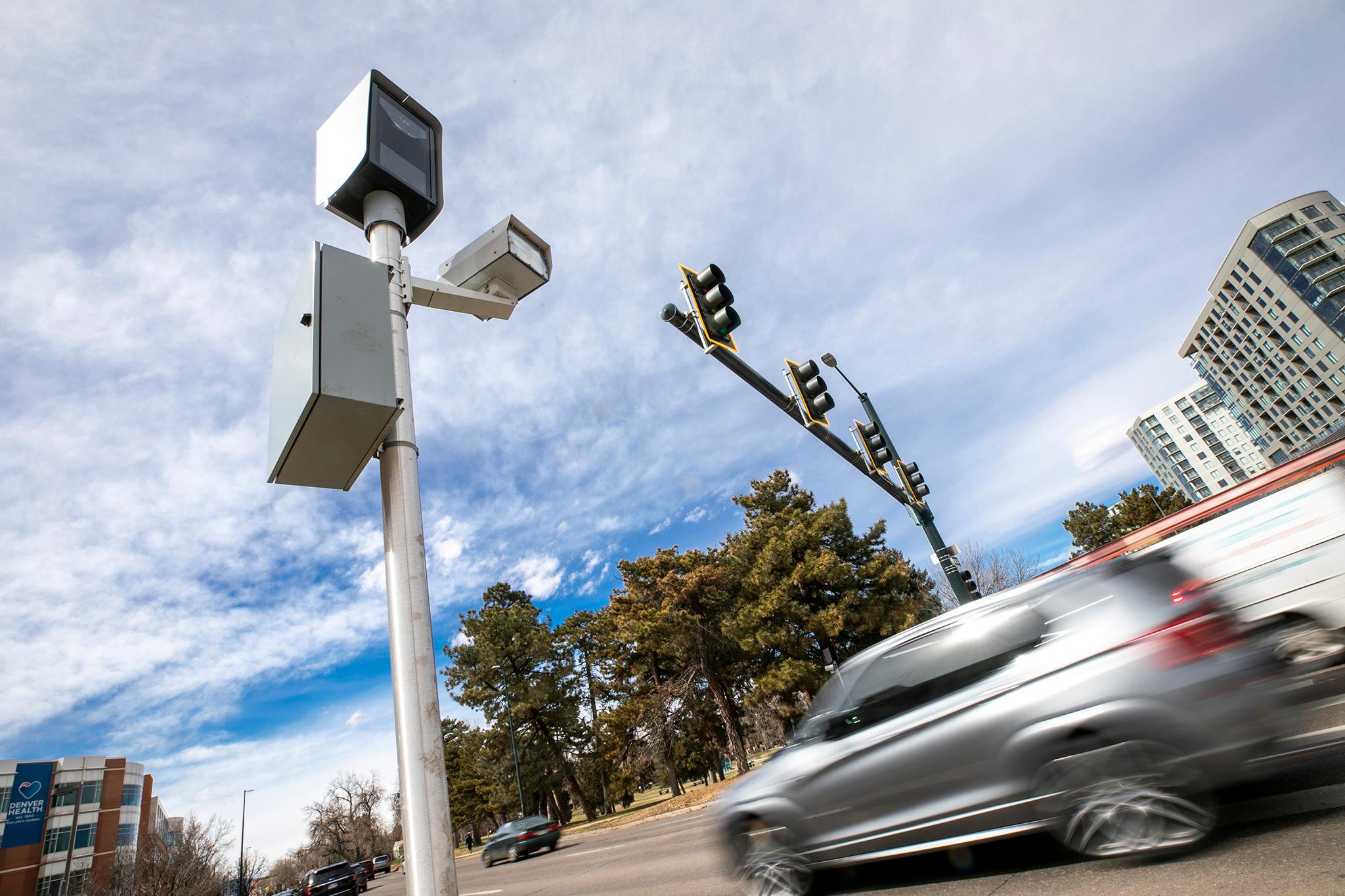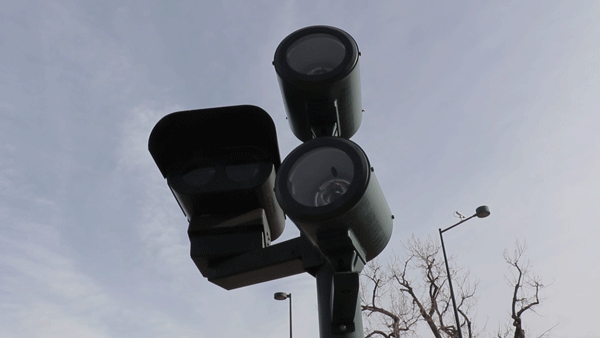
The quick flash of the speed camera could soon haunt lead-footed drivers on many more roads across the state, under a new bill introduced at the Capitol this week.
“We know that this technology can save lives, but currently we limit where it can be used,” state Sen. Faith Winter, D-Westminter, said in an interview. “We want to allow local municipalities to use it in the most dangerous places if they see that it works with their communities.”
Current state law restricts the use of speed cameras to just three areas: residential neighborhoods, within a construction zone, or along a street that borders a park.
The new bill would allow municipalities to designate corridors within their boundaries where they could install speed cameras, so long as the municipality also posts permanent signs warning of their presence. The bill would also remove an existing requirement that an officer has to be present when a speed camera is in use.
That means speed cameras, which research has shown are an effective if unpopular way to slow vehicles and reduce fatal and serious injury crashes, could be used on busy, wide roads that are responsible for a disproportionate share of traffic deaths. The same automated camera systems can also be used to detect cars that run red lights or drive in bus or bike lanes.
“We are really looking at this as a way to save lives and work on improving driver behavior,” Winter said.

Road deaths in Colorado reached a 40-year-high in 2022, with 745 fatalities. Authorities have pled with drivers to stop risky behaviors, including speeding. Increasing traffic deaths, both in Colorado and elsewhere, have helped sway multimodal advocates toward supporting speed cameras as a potentially less racist way to enforce potentially life-saving traffic laws.
“While Bicycle Colorado will continue to advocate for infrastructure as the gold standard to decrease crashes, we believe allowing communities to use automated speed cameras on all roads is an equitable and effective tool to disincentivize speeding and communicate the expectation of safe driving,” said Aishwarya Krishnamoorthy, spokeswoman for Bicycle Colorado, which supports the bill.
The bill caps fines at $40, though that figure is doubled for violations in school zones. The relatively low amount was meant to combat the perception that speed cameras are little more than “revenue generators,” Winter said.
“This isn't about revenue, this is about safety,” she said.
A driver’s first violation, if less than 10 miles an hour over the limit, would only draw a warning. Citations would not lead to points against a driver’s license and vehicles could not be booted. But governments could prevent the owner from registering their vehicle or transferring the title until citations are paid.
The bill is sponsored by Winter in the Senate and Rep. Meg Froelich, D-Englewood, in the House. Its first hearing will be in the Senate Transportation and Energy committee but has not yet been scheduled.









